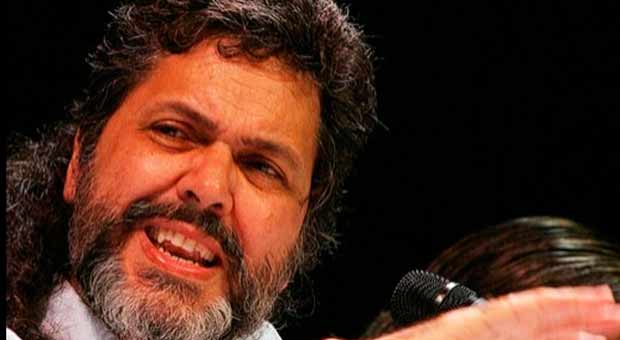Considerations by Abel Prieto, Advisor to the Councils of State and Ministers on the challenges Cuban culture is facing today.
Six years ago the Seventh Congress of the UNEAC took place, in your opinion: what were those setbacks, stalemates or advances that this organization has had?
There has been significant progress. In UNEAC they have a team consolidated in this period led by Miguel Barnet, accompanied by a group of highly effective people in driving cultural initiatives. The national dimension of the organization was consolidated during this time, so I hope that that line to continue in this new cycle.
During this time we worked very seriously against waste, against forms of corruption that were born. Barnet deployed a large battle to prevent the indiscriminate growth of the membership of the organization. The UNEAC has become a caricature of its former self. Many people came in earlier periods in bulk and are people who have nothing to do with art, rather the rearguard in artistic and aesthetic terms.
A few days ago the Minister of Culture Julián González recalled that between a Congress and the other over 95 major cultural institutions have been repaired throughout the country. Among them, he mentioned the Eddy Sunol Theater in Holguín, the Martí Theater whose inauguration was attended by Raúl Castro, which speaks of the priority of culture for the Revolution, even when there are strong restrictions on financial matters and resources. I think progress has been made in the infrastructure of culture. In addition, there have been emblematic institutions that have been rescued or are in the process as the Gran Teatro de La Habana.
But going a step beyond the institutional, I think new technologies that undoubtedly are an exceptional contribution to the promotion of culture and cultural messages to some extent in recent years have been carrying the worst of that junk culture of the hegemonic entertainment industry, including Nuestra Belleza Latina, The Voice Kids…
Especially young people, and it is our fault, have consumed uncritically all these products. I think we have continued to decline in taste by the audiovisual and non-commercial music. That is a problem that is not of UNEAC, but of the Ministry of Culture, and there have to be involved all the great movement of Art Instructors created by Fidel; teachers and the media have to influence significantly; there are problems that we have to compete with.
And how can the UNEAC reinvent itself in the face of these new technologies?
We have to use them. A few days ago I conversed with the President of the Marti Youth Movement and I was proposing him to create a formula based on new technologies to move Martí’s thought to promote the reading of the Apostle; because we cannot give up on our young people to read Martí. They would be mutilated as Cubans.
There are many signs, today people read less, and people look for lighter, less density books. People go less to the Festival of New Latin American Cinema; those are real data that are there. It is true that the forms of culture have diversified, but we have to make them for good.
One of the challenges that today institutions of culture have is how to ensure that new technologies will help us be carriers of messages, not only about national culture, but the best of world culture.
There is a cultural conquest of the world project and others more specific of subversion against Cuba; those are two levels of major project of domination that is very efficient. They are well-made. It is a factory that operates using components of the artistic avant-garde design that make it very attractive especially for young people. We have to think of the free time of young people differently, occupy it with a high quality cultural consumption, or it will be overwhelmingly busy with all that junk culture that exists.
Fernando Martínez Heredia said when he was given the status of Master of Youth we had to get people interested and enjoy … we need to achieve motivating people to enjoy culture.
How to make the UNEAC Congress does not become a catharsis? What are these results that have to go beyond this Congress and be represented in Cuban culture and Cuba?
Here there will be no magic solutions to many problems, but I think some results have to be associated with proposals about how to make sustainable culture, how to avoid squandering the budget without deforming cultural policy. There is an area of culture that is necessary to be budgeted because otherwise you kill it. We cannot pretend that symphony orchestras are enterprises or ballet is profitable. It should be clear that there are budgeted areas, but there are other areas of culture that could be economically sustainable expressions, never give up the democratization of culture, which is one of our great achievements. We cannot turn it into a luxury item.
The issue of how not to distort cultural policy under current conditions is vital. We cannot allow temptations of economist character. At the same time we have to think how culture can help the nation right now, in these so decisive circumstances. There we have to think which can be the input from artists and writers to the bankruptcy of elementary rules of social coexistence, given the deterioration of decorum while thinking on how to stop the process of colonization.
Personally I think it thrives in an uncontrolled manner a cult of the Yankee. I do not mean American; we will distinguish it that way. Hopefully people would read Whitman, Poe, Emerson, Melville, hopefully that would be the case. But no, what is being consumed is a Yankee, or rather industrial culture, poor Hispanic-American culture. But at the same time we have to try not to humiliate people who use these products, because the guilt of what is happening is ours. The institutions are responsible to a large extent that tastes have regressed to that point. We need to create a cultural production that is really entertaining, attractive, having such high-quality images, you have to hook young people; but not empty of meaning. I think the culture has to be a sense in emancipator terms and that’s what we need sometimes.










